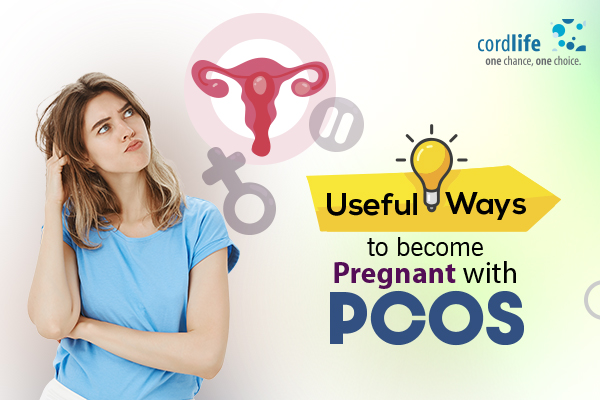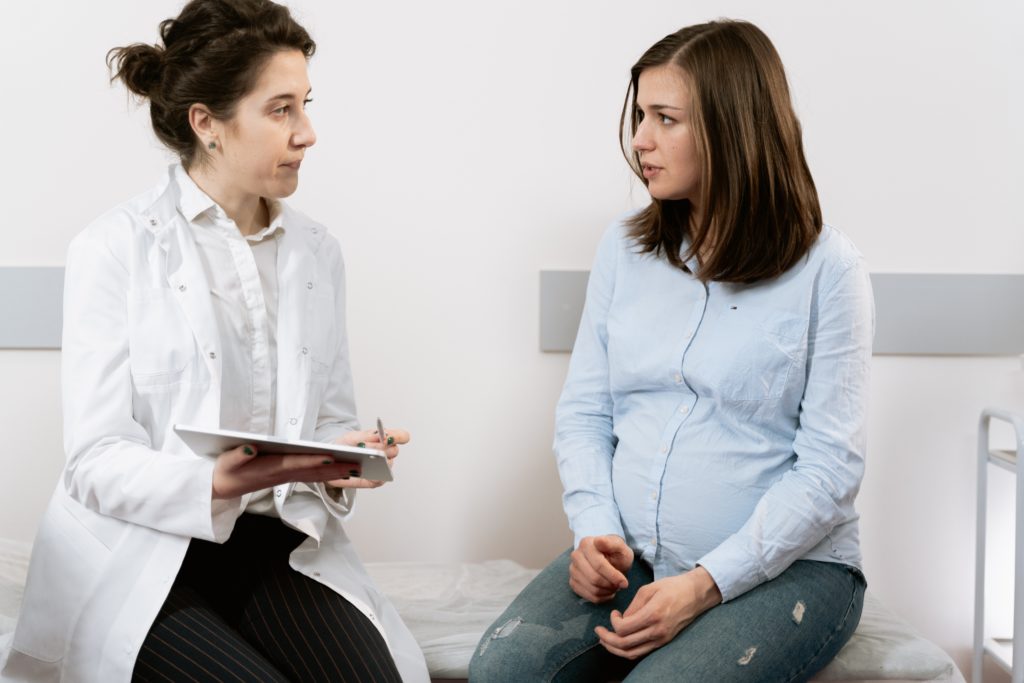Table of Contents
Technically, your best age to get pregnant is between your late teens and late 20s. By the time you’re 30 and older, your chances of fertility might be a little compromised. The reasons can be manifold – genetic or lifestyle disorders (like weight, age smoking, and drinking) or medical. Polycystic Ovarian Syndrome or PCOS is one such medical condition that can affect the pregnancy of 6% to 12%of women of childbearing age across the world.
What Are The PCOS Effects On Pregnancy?
Generally, every month around 14 of the average 28 days an egg releases from each ovary making you down with periods. That should be the normal ovulation process if you’re trying to have a baby. However with PCOS, which means “many cysts”, the egg from each ovary can hardly fertilize during your reproductive age. This affects the ovulation cycle, giving rise to irregular periods. The presence of cysts also surges the production of androgen levels (Higher than the normal production of male hormone levels) which can also stop the eggs from fertilizing. Above all being overweight is also linked with PCOS (increasing the insulin and glucose level in the body).
How To Get Pregnant With PCOS?
Remember that PCOS is a long-term health condition. Your chances of pregnancy with ovarian cysts might be tricky, but chances are not entirely impossible. You would require long-term management methods to deal with the symptoms. So, if you are planning to get pregnant with PCOS symptoms of irregular or no periods (in some cases many years), excessive facial or body hair growth (or both), overweight, acne, scalp hair loss, mood swings, and sleep disruption, consult your healthcare provider or gynecologist immediately.
How to Improve The Chances of Getting Pregnant With PCOS Medically?
Your healthcare provider might recommend certain medical ways to treat this condition:
Get Prescribed Medicines To Keep Your Hormones In Balance
On visiting the doctor he or she will give you insulin-resistant drugs like metformin, Clomid, letrozole, and Gonadotropins to keep your weight and insulin level in check, restart your menstrual cycle, and keep your hormones in balance (too much or too little hormones can make it difficult to get pregnant with cysts).
Getting Fertility Procedures Done
Yes! The doctor might suggest in vitro Fertilisation (IVF) to help you get pregnant with ovarian cysts quickly. Your healthcare provider may include blood tests, ultrasound scans, and various other health check-ups, before starting the process. Although this process may take months, even years, but research has shown that the PCOS pregnancy success rates with IVF are high.
How to Cure PCOS Naturally and Get Pregnant?
You can also improve your chances of conceiving with PCOS by including these natural remedies :
Eat Healthy and Live Healthily
Eating in balance, doing regular exercise, and getting adequate rest are the must-dos. While doing exercise all you have to remember is that losing only 5% to 10% of your body weight can help improve the symptoms. A study suggests that you can ovulate regularly if you can combine brisk walking and healthy eating. Also make sure that you eat a heavy breakfast and small dinner and have leafy greens, more proteins, whole grains, beans, and healthy fats. Avoid insulin-resistant food to keep your blood sugar level in check.
Stress Is The Biggest Villain
In today’s day and age, high stress is unavoidable. The dominance of stress can be seen on social media, your work, and your personal life. Although a direct association between stress, PCOS, and infertility is debatable, however high levels of stress can provoke you to adapt to an in-disciplined lifestyle like irregular sleep patterns, emotional eating, not exercising enough, and so on. These lifestyle choices have a direct correlation with infertility. Practice meditation, choose a hobby that you can enjoy, and take vacations at regular intervals, to reduce your stress levels.
Besides using the above-mentioned natural ways to improve your chances of pregnancy with PCOS; quit smoking and consume drinks within limits to keep your eggs healthy.
Regardless of the treatments, you can’t lose hope and try to become pregnant even if you have PCOS. You can expect to conceive within a year (or even less) as long as you are ovulating normally and have no other risk factors for infertility. PCOS pregnancy success rates are high.
Visit the blog page of Cordlife India to know more on pregnancy, postpartum, baby care, and cord blood banking.

